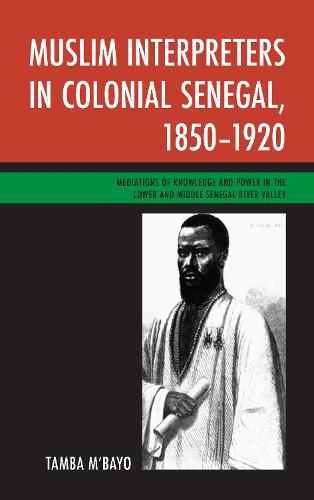Readings Newsletter
Become a Readings Member to make your shopping experience even easier.
Sign in or sign up for free!
You’re not far away from qualifying for FREE standard shipping within Australia
You’ve qualified for FREE standard shipping within Australia
The cart is loading…






This book investigates the lives and careers of Muslim African interpreters employed by the French colonial administration in Saint Louis, Senegal, from the 1850s to the early 1920s. It focuses on the lower and middle Senegal River valley in northern Senegal, where the French concentrated most of their activities in West Africa during the nineteenth century. The Muslim interpreters performed multiple roles as mediators, military and expeditionary guides, emissaries, diplomatic hosts, and treaty negotiators. As cultural and political powerbrokers that straddled the colonial divide, they were indispensable for French officials in their relations with African rulers and the local population. As such, a central concern of this book is the paradoxical and often contradictory roles the interpreters played in mediating between the French and Africans. This book argues that the Muslim interpreters exemplified a paradox: while serving the French administration they pursued their own interests and defended those of their local communities. In doing so, the interpreters strove to maintain some degree of autonomy. Moreover, this book contends that the interpreters occupied a vantage position as mediators to influence the construction of colonial discourse and knowledge, because they channeled the flow of information between the French and the African population. Thus, Muslim interpreters had the capacity to shape power relations between the colonizers and the colonized in Senegal.
$9.00 standard shipping within Australia
FREE standard shipping within Australia for orders over $100.00
Express & International shipping calculated at checkout
This book investigates the lives and careers of Muslim African interpreters employed by the French colonial administration in Saint Louis, Senegal, from the 1850s to the early 1920s. It focuses on the lower and middle Senegal River valley in northern Senegal, where the French concentrated most of their activities in West Africa during the nineteenth century. The Muslim interpreters performed multiple roles as mediators, military and expeditionary guides, emissaries, diplomatic hosts, and treaty negotiators. As cultural and political powerbrokers that straddled the colonial divide, they were indispensable for French officials in their relations with African rulers and the local population. As such, a central concern of this book is the paradoxical and often contradictory roles the interpreters played in mediating between the French and Africans. This book argues that the Muslim interpreters exemplified a paradox: while serving the French administration they pursued their own interests and defended those of their local communities. In doing so, the interpreters strove to maintain some degree of autonomy. Moreover, this book contends that the interpreters occupied a vantage position as mediators to influence the construction of colonial discourse and knowledge, because they channeled the flow of information between the French and the African population. Thus, Muslim interpreters had the capacity to shape power relations between the colonizers and the colonized in Senegal.